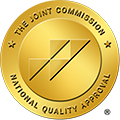Prescription opiates, despite their addictive potential, are still overprescribed for pain management. Prolonged use can contribute to dependence and opioid withdrawal symptoms when trying to discontinue use. In these cases, medically supervised detoxification can be a necessary step to reach and maintain optimal health. As you begin detoxing from opiates, you should know what to expect and how you can safely and successfully taper off.
Opioid Withdrawal Symptoms
Detoxing involves taking a person off of the opiates that they have become physically dependent on and, although this process looks different for everyone, it oftentimes comes with withdrawal symptoms. Anticipation of these symptoms can discourage people from initiating the detox process, however, there are ways to manage these symptoms. If attempted without professional intervention, opiate withdrawal symptoms may include:
- Anxiety
- Runny nose
- Watery eyes
- Body aches and pain
- Irritability
- Insomnia
- Dilated pupils
- Sweating
- Vomiting
- Cramps
- Fever
- Shaking
- Rapid heart rate and breathing pattern
- High blood pressure
- Hallucinations
- Seizures
Fortunately, it is possible to mitigate these effects. Outpatient opiate detox is medically supervised and patients can be given safe, non-addictive medications to help make the process more comfortable.
Medically Supervised, At-Home Opiate Detox
Detox is sometimes referred to as medically supervised withdrawal management. Coming off of opiates can be dangerous and uncomfortable if done improperly or without medical oversight. However, for those that are needing to continue tending to their responsibilities at home or at work, it can be difficult to attend an inpatient program that offers 24/7 care in a facility. In this case, medically supervised, at-home opioid detox may be your best option.
Outpatient detox programs allow patients to gently discontinue opiates while still maintaining other responsibilities, like working or being a stay-at-home parent. Depending on the program you choose, the process could look different. At Acworth, our proprietary outpatient process involves providing patients with structure, accountability, and medication management. After discussing your past opiate use and health history, a team member will curate a custom program that will allow you to comfortably discontinue your opiate use.
The goals of opioid detox programs, both outpatient and inpatient, should include:
- Ridding the body of its dependence on the opiate
- Managing pain relief and other withdrawal symptoms during detox
- Preventing relapse through patient connection and education
Although alleviating the body’s physical dependence on opiates is detox’s primary goal, it is important to consider what comes next. Continued treatment and education can help you maintain your sobriety by providing you with the tools and resources you need to successfully lead an opiate-free life.
Contact Acworth Outpatient Detox
Withdrawal symptoms that come with opiate detox can be intimidating – they may even be enough to draw you away from sobriety. At Acworth Outpatient Detox, we make it our goal to get you through the detox process as comfortably as possible. Our team is dedicated to offering you 24/7 support and guidance as you recover while maintaining your daily responsibilities. If you or someone you know is struggling with opiate dependency and are looking for a reliable outpatient program, contact our office today to schedule an appointment.






